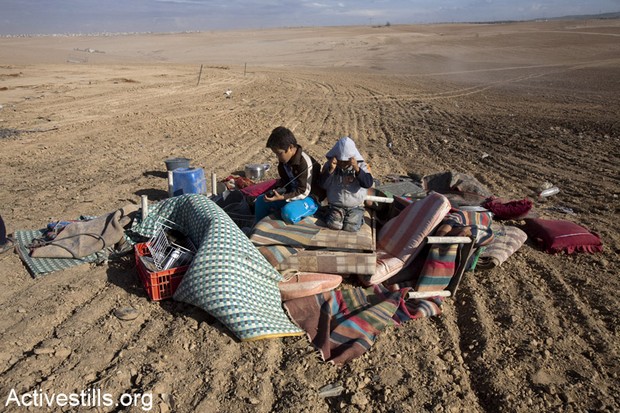While the Israeli public and media failed to take any significant notice of a recent UN report criticizing Israel’s policy on children’s arrests and detention, some European officials and NGOs are speaking out about the abuses.
By Galit Saporta (Edited by Ami Asher)

It seems that yet another report, this time from the UN Committee on the Rights of the Child (CRC), regarding abuses that occur during arrest, interrogation and detention of Palestinian children by the Israeli army, has failed to generate any public attention in Israel.
Only one article in Haaretz (“It’s only Palestinian children,” June 27, 2013) has referred to this issue. In some European countries, however, it is high on public and government agendas. In the Netherlands and the U.K., both politicians and the public are increasingly losing patience with Israeli violations of the U.N. Convention on the Rights of the Child, which Israel ratified in 1991.
Less than a week after the CRC report was released on June 25, the Dutch parliament held a lively debate on the detention and arrest of Palestinian children by the IDF. At the end of the debate, even Han ten Broeke of the right-wing coalition party VVD – traditionally a staunch supporter of Israel and its government – joined the critics and quoted from a 2011 B’Tselem report. He called upon the Dutch foreign minister to convey to the Israeli government the message that Palestinian children under interrogation should be addressed in their own language and that a lawyer should be present, or at least a video recording should be made during any such interrogation. He also called for a ban on the common practice of midnight arrests.
A day earlier, in response to questions by the Dutch national television news, Foreign Minister Frans Timmermans, who had just returned from a friendly visit to Israel, said: “It is a shocking report, and we will continue paying attention to it. In our direct contacts with the Israelis we have asked them to improve detention conditions, and we intend to pursue the matter further by raising the issue at the EU level.”
The Dutch Coalition for Palestinian Children in Israeli Detention plays a considerable role in focusing attention and shaping the debate in the Netherlands. It is an alliance of seven organizations with diverse backgrounds – Israeli, Palestinian, Jewish and children’s rights groups – which has been advocating awareness and change in the situation of underage Palestinian detainees in the public and political spheres for two years now. The recent visit of a B’Tselem representative organized by one of its member groups yielded clear results, with their report being quoted in parliament several weeks later.
Meanwhile, Israel continues to evade and negate the issue of Palestinian children in Israeli detention and deny its violations. Even 700 Palestinian children arrested by Israeli authorities every year are not enough to awaken the Israeli public from its stupor. According to the concluding observation of the CRC report, during interrogations Palestinian children:
… are systematically subject to physical and verbal violence, humiliation, painful restraints, hooding of the head and face in a sack, threatened with death, physical violence, and sexual assault against themselves or members of their family, restricted access to toilet, food and water.
Apparently, even that statement has not alerted Israeli politicians and media to the urgent need to address these issues. Only a stone’s throw away, Israel has created an amazingly efficient law enforcement system that boasts a 99.7 percent conviction rate, mostly by guilty pleas, which has nothing to do with justice.
Galit Saporta is a board member of gate48 – platform for critical Israelis in the Netherlands. This article was first published in Hebrew on Haokets.
Related:
Detained: Testimonies from Palestinian children imprisoned by Israel
WATCH: IDF detains 5-year-old Palestinian in Hebron, blindfolds and handcuffs father
One child’s detention in Hebron embodies the sickness of an entire regime
IDF soldiers to West Bank children: ‘We are the army, be careful if we see you’

